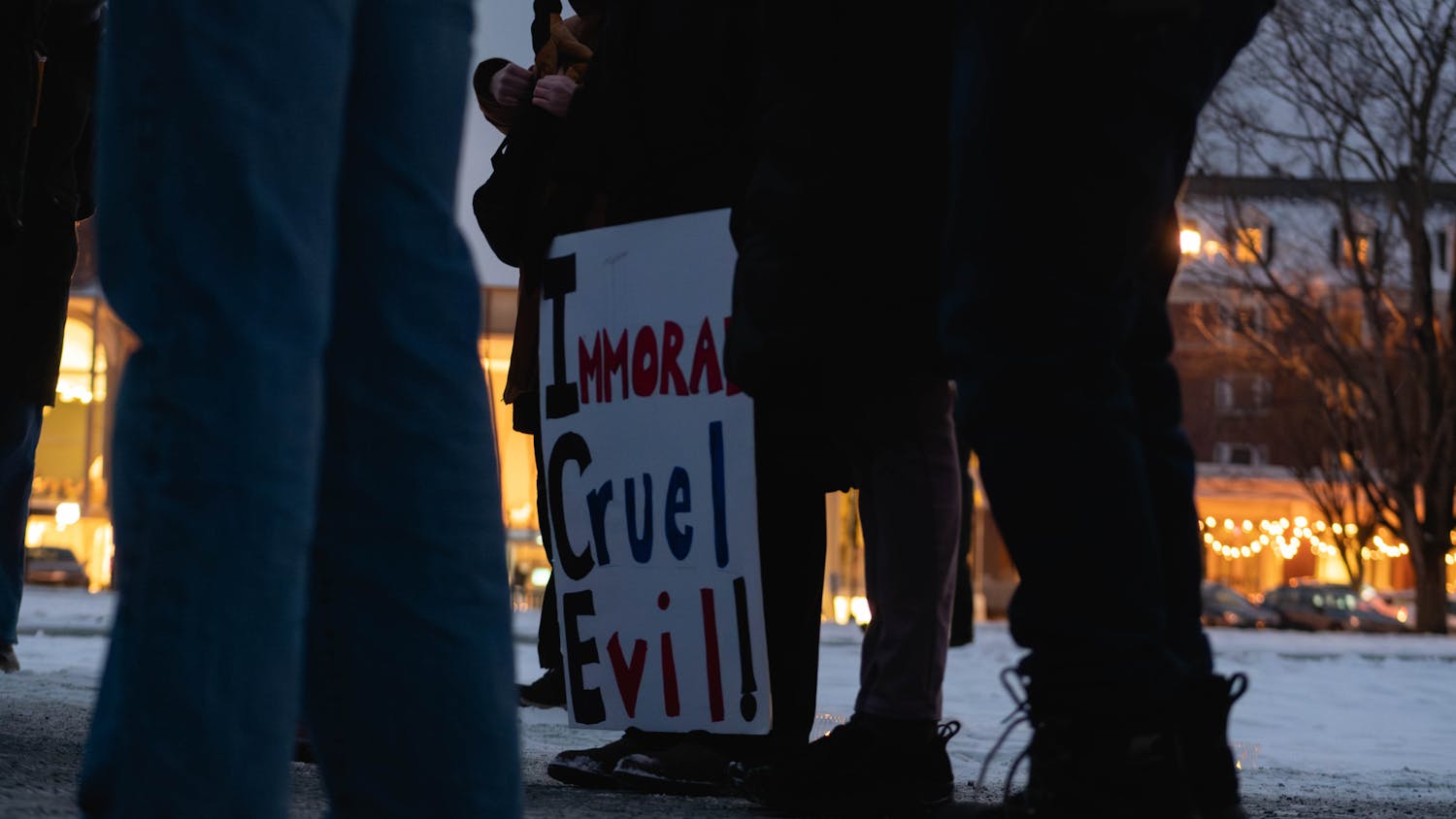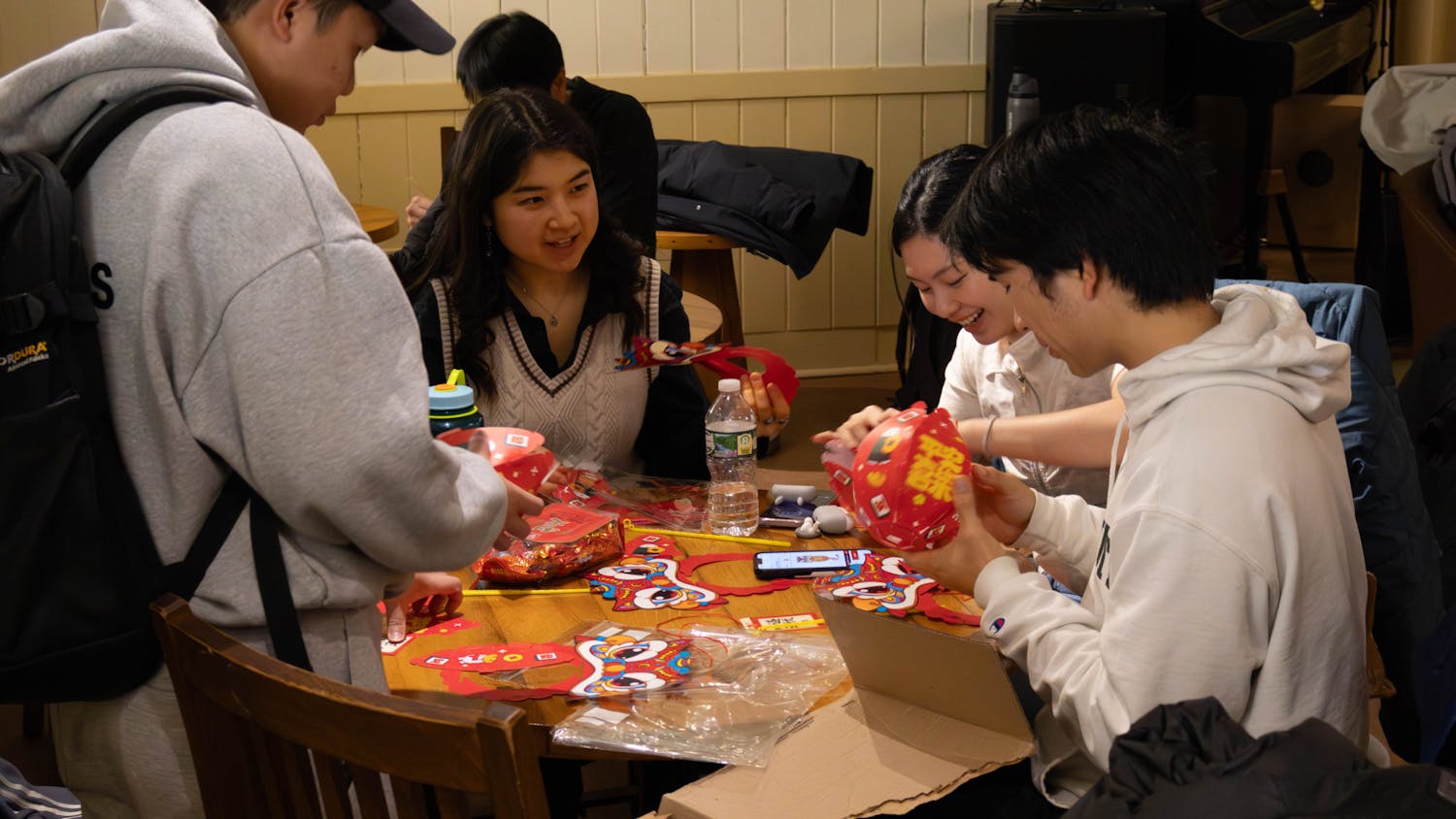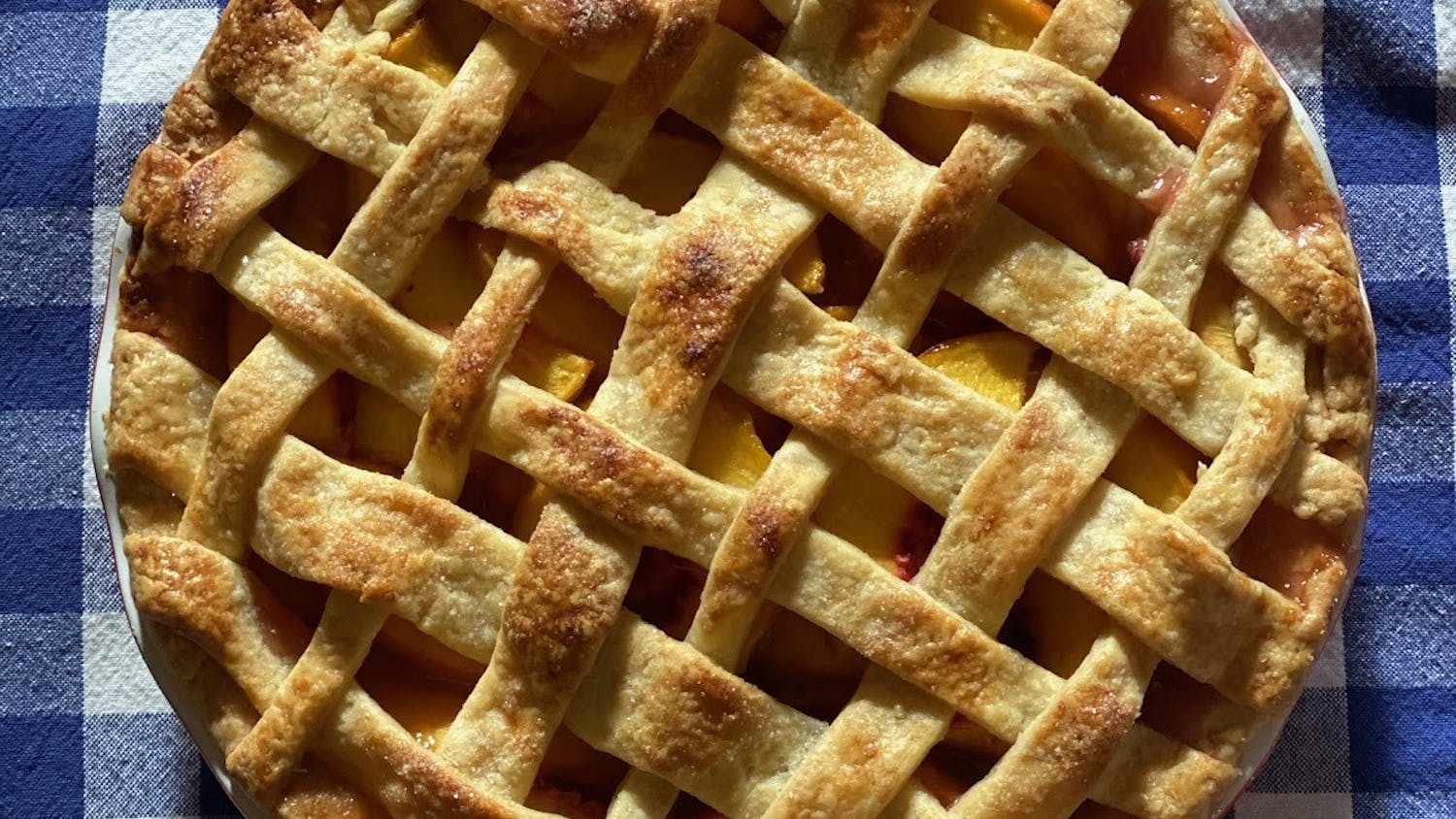I started @curvedandcontoured as an Instagram account dedicated to makeup, feminism and body positivity, which is a feminist movement focused on improving self-esteem and body image. In particular, I do so by addressing issues like fat shaming. I have always been interested in body image, largely because I have had an eating disorder for most of my life. In high school, I lost 35 pounds and was praised by friends, teachers and family for working hard to become “healthy,” even though these eating habits were incredibly harmful to my health. Because of my eating disorder, I spent almost every moment of my life obsessing over thinness, an ideal I could never seem to achieve. I eventually started eating again, so I naturally gained a lot of weight. Right now, I weigh about 90 pounds more than I did at the height of my eating disorder, and for the first time in my life, I don’t hate my body.
Right before coming to Dartmouth, my friend from home took my phone and started an Instagram account for me and named it @whatahoot95 — I’ve always loved owls, so this seemed fitting. Around this time, I saw an article on Facebook about Robyn Lawley, an Australian plus size model who had landed the cover of Cosmopolitan Australia. This sparked controversy, as Lawley is a 6-foot-2-inch gorgeous model with a flat stomach and an hourglass figure. People were frustrated that someone with such a thin body was considered plus size. However, I followed her on Instagram (and still do) because she posts lovely photos about self-love and beauty standards. I started following a ton of plus size models and body activists, too, and the way I thought about my body changed drastically. Within a year, I genuinely felt like I loved my body for the first time in my life. I realized that I had never really seen fat people in the media portrayed as beautiful or attractive. I had seen fat people in the context of weight loss commercials or on “The Biggest Loser, but always within a narrative of weight loss. I had never seen fat people who were just fat, who were happy and who weren’t trying to lose weight or to change themselves. Seeing body positive plus size women who love their bodies unconditionally and unapologetically really challenged me to be kinder to my own body.
Body positivity, to me, relates to my love of makeup. Growing up in theatre, I had a lot of practice doing my makeup. Personally, I don’t like the idea of wearing makeup to make myself look naturally beautiful because if I’m going to spend an hour doing my makeup, I want everyone to know. I started @curvedandcontoured with this in mind, posting tons of selfies and pictures of my body and plus size clothing. One picture in particular helped my account grow, as I gained over 1,000 followers in one day after posting it. This is a picture of me from behind wearing a white bikini at Manly Beach in Sydney, Australia.
I captioned the picture, “They call me ‘fat’ like it’s a bad thing” with a few unicorn emojis. I’m joining the many body positive activists who have reclaimed the word “fat,” using it as a neutral adjective rather than an inherently negative word. I love this picture because to me, it represents how I want to profess my body positivity. I look fat and I look great, and those two things are not mutually exclusive. While models like Ashley Graham, the first plus size model to cover Sports Illustrated, have undeniably helped to make bigger bodies more accepted and celebrated, they still serve to uphold a near unachievable body ideal, that of the white, curvy, hourglass, flat-stomached, full-figured beauty (Although to be honest, @ashleygraham once liked one of my Instagram pictures, and it was one of the better things that’s ever happened to me). In most mainstream media, plus size models still don’t look fat.
And this leads me to my three most formative moments running @curvedandcontoured. The first happened because of the bikini picture, which received over 1,500 likes and nearly 100 comments, most of which were positive but a great deal of which were negative. In many comments, however, users simply tagged their friends. To my surprise, one of the people who tagged a friend had “Dartmouth” written in his description. I looked him up on Facebook and saw that he was a Dartmouth student, and we had a lot of mutual friends. So, I asked someone about him. My friend texted this guy, who said that he tagged his friend because he had a “thing” for “BBWs,” or “Big Beautiful Women” — basically a porn term for having a fat fetish. In this moment, I realized for the first time that people were actually looking at what I was posting, and that the more popular my account became, the more negative comments I was going to receive. This Dartmouth student who I had never met commented on my picture because he didn’t realize that I went to Dartmouth. All I could think of were the college students who see me online and see a random fat girl rather than a classmate.
The second was when a Tumblr account dedicated to making fun of fat people reposted two of my pictures.
One caption read, “Thunder thighs ahoy! Those boots must smell absolutely rancid when you take them off. How do you even take them off? It looks like your fat f**king legs would be stuck in them forever.”
The other read, “Nice cake face, ham. How many hours did it take you to paint your face to look like a f**king clown? Thin privilege is having cheek bones without having to contour, I guess.”
Not exactly. Thin privilege is being able to post a picture of your body on the internet without being called “ham,” “lazy,” “unhealthy,” “rancid” or “disgusting.” After these two experiences, I thought about deleting my account entirely. Like I said, I have an eating disorder, and I didn’t think that my account was worth the emotional harm that these comments were causing. Comments like these are painful, especially when I know that a lot of people in the world assume that being fat is fundamentally a bad thing. By posting pictures of myself online, I felt like I was inviting criticism, perpetuating body negativity and creating a space for the comments that I initially set out to combat. I felt like I was a part of the problem.
But then I think of my third most formative moment — a plus size woman commenting on one of my pictures saying that I inspired her to wear a crop top for the first time. When I think of this woman’s comment, I remember the plus size women on Instagram who helped me overcome my own body image issues when I first got to Dartmouth over three years ago, and I remember why I started @curvedandcontoured in the first place.
Loving my body loudly and publicly pisses some people off enough to try to tear me down, and that’s a problem. For me, body positivity is about loving your body when it feels like everyone around you says you shouldn’t. We need to fight for body positivity so that men who struggle with body image feel like they can ask for help. We need to center women of color in a body positive movement that currently upholds European beauty standards idealizing flat-stomached white women. We need to problematize well-intended body positive slogans like “healthy is the new skinny,” which may exclude people who are medically unable to exercise. I think of all the goodness and love within the body positivity movement, but so much work still has to be done. When I said “They call me ‘fat’ like it’s a bad thing,” a random guy commented “[be]cause it f**king is.” I and the 4,500 followers of @curvedandcontoured, say it’s not.




